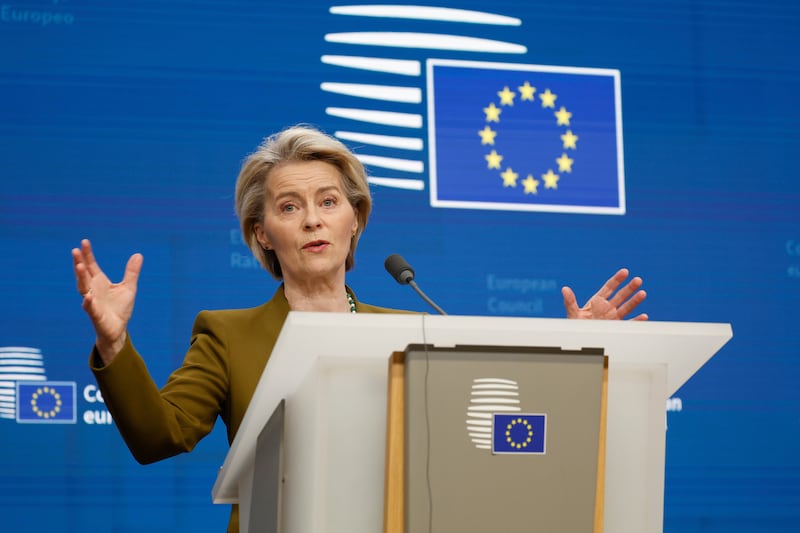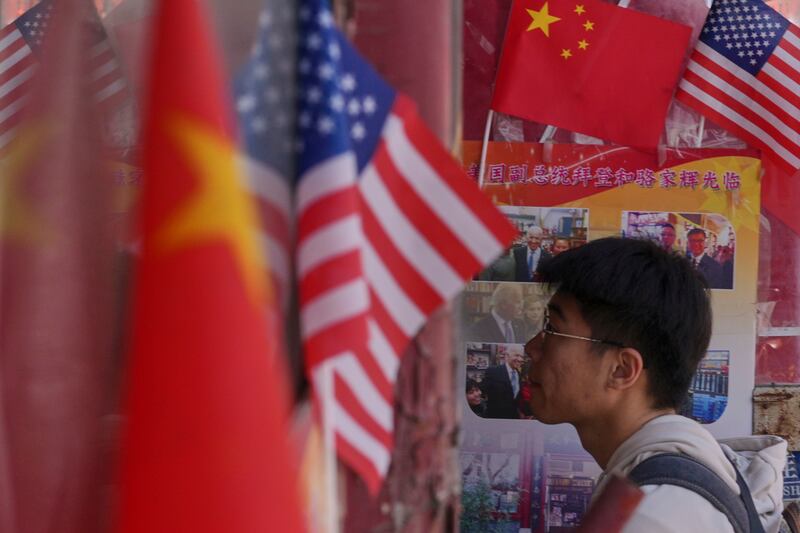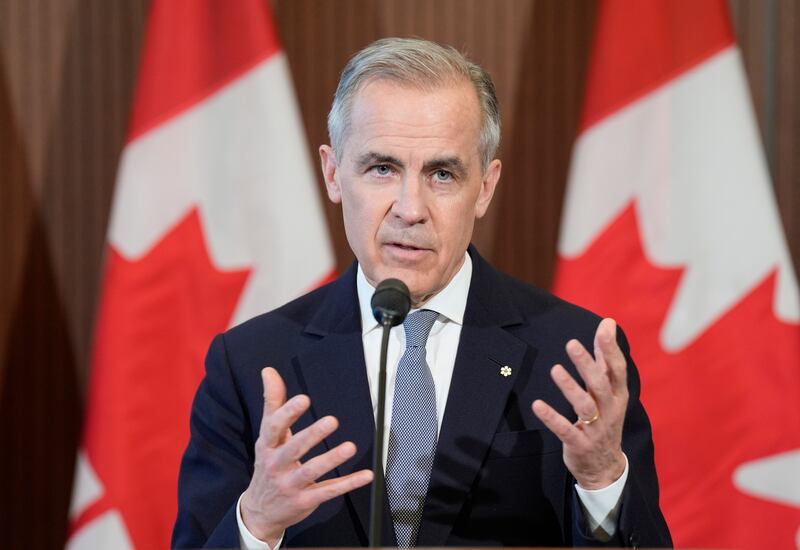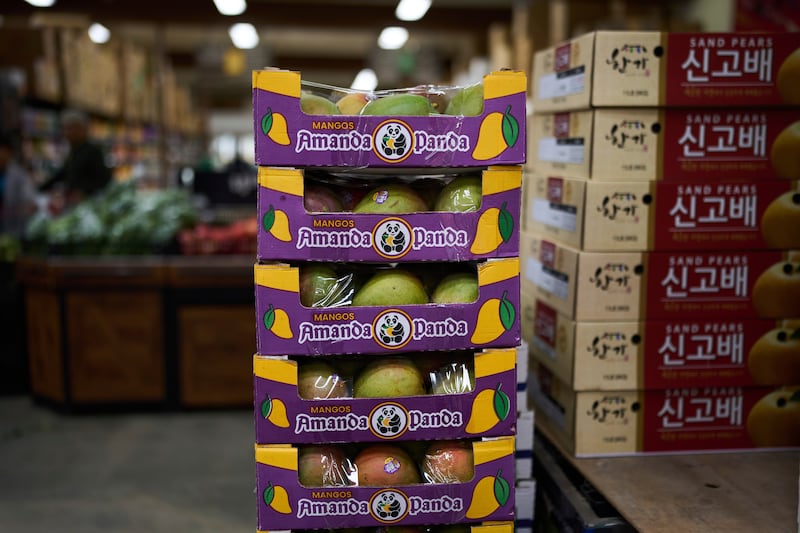World leaders aren’t taking to President Donald Trump’s tariff regime too kindly. The White House slapped a blanket 10% tariff on all imports and additional import tax rates of up to 50% on countries with trade barriers.
The stock market also had an adverse reaction to the latest slew of import duties but Trump reassured the country of a brighter, more stable future.
The United States will “have six or seven trillion dollars coming into our country,” thanks to these import taxes, Trump told the White House press pool on Thursday afternoon.
“The markets are going to boom,” and “the country is going to boom,” Trump said, adding that other counties “have taken advantage of us for many, many years.”
Leaders from across the world, including the European Union, China, Madagascar and Thailand, also negatively reacted to the news while U.S. Treasury Secretary Scott Bessent encouraged treading forward with caution.
“My advice to every country right now is: Do not retaliate. Sit back, take it in, let’s see how it goes,” Bessent said in an appearance on Fox News Wednesday evening. “Because if you retaliate, there will be escalation. If you don’t retaliate, this is the high-water mark.”
According to the office of the U.S. Trade Representative, “The top five purchasers of U.S. goods exports in 2022 were: Canada ($356.5 billion), Mexico ($324.3 billion), China ($150.4 billion), Japan ($80.2 billion), and the United Kingdom ($76.2 billion).” Despite Trump’s assurances of a future inflow of cash, the escalating global tensions could have devastating consequences on not only foreign businesses but homegrown American companies that are dependent on imports and exports. The sense of instability doesn’t help either.
Here’s how world leaders are reacting.
European Union
European Commission President Ursula von der Leyen called Trump’s 20% tariffs on the EU “a major blow to the world economy.”
“Uncertainty will spiral and trigger the rise of further protectionism,” said von der Leyen.

“We are already finalizing a first package of countermeasures in response to tariffs on steel. And we are now preparing for further countermeasures, to protect our interests and our businesses if negotiations fail,” she said.
China
A Chinese Foreign Ministry spokesperson accused the U.S. of violating World Trade Organization rules, adding it’s a move “China firmly rejects.”
“Trade and tariff wars have no winners. Protectionism leads nowhere,” said Foreign Ministry spokesperson Guo Jiakun in a press briefing from Thursday. He said the Chinese government urged the Trump White House to resolve differences fairly.

China has already implemented new 15% duties on U.S. agricultural imports, as the Deseret News reported.
Canada
Although Canada did not appear on the latest White House list of countries facing tariffs, a 25% tax on Canadian goods is already in place. Newly elected Canadian Prime Minister Mark Carney wants to use this opportunity to not only become a self-sufficient country but an economic leader in the G7, which includes Canada, France, Germany, Italy, Japan, the United Kingdom, and the United States, as well as the European Union.

“We believe in international cooperation. We believe in the free and open exchange of goods, and services and ideas,” said Carney. “And if the U.S. no longer wants to lead, Canada will.” Last week, the new Canadian prime minister indicated that “the old relationship” of mutual military and economic “cooperation is over.”
Canada has announced 25% tariffs on $30 billion of American products.
Israel
It seems no one is safe, including Israel. Ahead of “Liberation Day,” Israel did away with all its import duties against American goods in hopes that the U.S. would return the favor. Instead, they will bear the brunt of a 17% tariff.
“We were sure that the decision to completely cancel tariffs on imports from the U.S. would prevent this move”, an official told local media. “But it didn’t happen.”
Japan
Japanese Prime Minister Shigeru Ishiba also expressed disappointment with Trump’s 24% reciprocal tariffs but did not indicate whether the East Asian country would retaliate.
“We had been requesting that the U.S. government review its unilateral tariff measures at various levels and we are extremely disappointed and regret that such measures have been implemented nonetheless,” Ishiba said during a press conference, as per Reuters.
Mexico
Mexico was also not included on the White House list from Wednesday. President Claudia Sheinbaum said she does not plan to impose import duties on its largest trading partner, the U.S.
She appeared careful not to escalate the emerging global trade war in her backyard and expressed confidence in Mexico’s ability to strengthen its economy independent of its North American allies.
On Thursday, Sheinbaum said Mexico will release “a comprehensive program, not a tit-for-tat on tariffs.”



